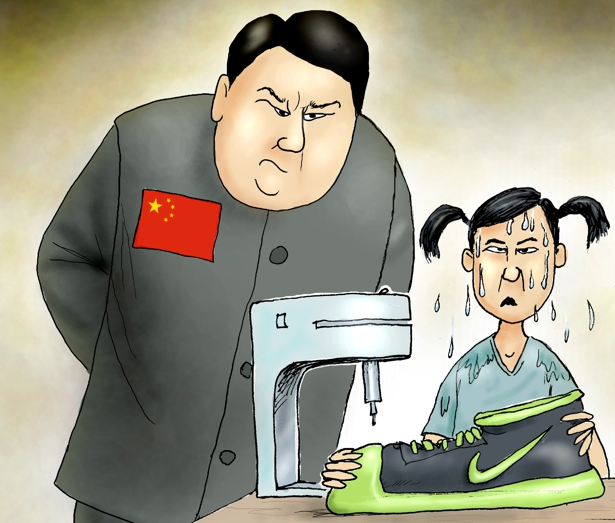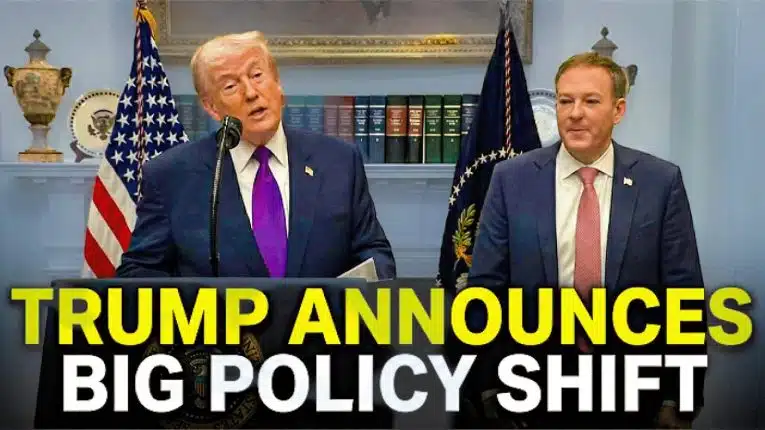
By Rick Manning
The Department of Labor has long recognized Uyghur Muslims and other religious and ethnic minorities who have been forced into state-sponsored labor and re-education camps by the Chinese Communist Party in Xinjiang and elsewhere across China. The 2020 report published by the U.S. Department of Labor’s Bureau of International Labor Affairs lists China 17 times as using children and slaves to make goods, many of which find their place on the shelves of U.S. retailers like Walmart. Artificial flowers, bricks, Christmas decorations, coal, cotton, electronics, fireworks, fish, footwear, garments, gloves, hair products, nails, textiles, thread/yarn, tomato products, toys are all listed as being made with child or slave labor in China.
The Department of Defense (DoD) has also condemned the vast concentration camp system in China said to be housing up to 3 million Uighur Muslims in Xinjiang province alone. In 2019, Assistant Secretary of Defense for Asian and Pacific Security Affairs Randall Schriver told a Pentagon briefing, “The [Chinese] are using the security forces for mass imprisonment of Chinese Muslims in concentration camps,” justifying the use of the term because “given what we understand to be the magnitude of the detention, at least a million but likely closer to three million citizens out of a population of about 10 million”. Finally, there is the ongoing genocide for organs of political prisoners including Falun Gong, the Uighurs and others, according to the Independent Tribunal Into Forced Organ Harvesting from Prisoners of Conscience in China.
A full accounting of these atrocities is long overdue, and currently, U.S. investors have $458 billion invested in Chinese and Hong Kong stock exchanges and bonds, an estimated $302 billion of which is held by mutual and pension funds. In 2020 and 2021, DoD listed 44 companies listed on U.S. stock exchanges that are either owned or controlled by the Chinese Communist Party and military before being unfortunately rescinded by the Secretary of Defense on June 3. And yet, China did not suddenly stop controlling its state-run enterprises or using slave labor and this is nothing more than a dereliction of duty that should not be repeated.
Beyond being immoral, investments in Chinese assets are financially risky due to the lack of transparency and Communist Chinese control over their assets. Under ERISA, we believe that the Labor Department has a fiduciary responsibility to end all private retirement investments in dangerous Chinese investments by amending the current pending “Prudence and Loyalty in Selecting Plan Investments and Exercising Shareholder Rights” regulation to disqualify all companies that do not adhere to the transparency requirements of Dodd-Frank and Sarbannes-Oxley. Using the same concerns about both the immorality and lack of transparency for the investments, we also urge the divestment of the Pension Benefit Guaranty Corporation from China.
In 2020, the Labor Department also took the bold step of excluding risky Chinese assets from the federal employees 401(K) Thrift Savings Plan (TSP) because, in the words of former Labor Secretary Eugene Scalia, they “would place millions of federal employees, retirees, and service-members in the untenable position of choosing between forgoing any investment in international equities or placing billions of dollars in retirement savings in risky companies that pose a threat to U.S. national security.” In May 2020, the TSP voted to postpone inclusion of Chinese assets in federal retirement portfolios.
Obviously, if these assets are too risky for inclusion in the federal TSP, then they are too risky to be included in private 401(K) investments under ERISA.
What’s more, any investments which do not meet the same transparency requirements that are in place for U.S. based companies on American exchanges should be deemed ineligible for private retirement account investing. It is the Labor Department’s Employment Standards and Benefit Administrations job to differentiate between investments which are suitable and unsuitable for private retirement funds. The inclusion of bonds and equities into retirement accounts that require special exemptions from our nation’s transparency rules in order to have a place on US-based exchanges obviously are not suitable. Similarly equities and bonds on foreign-based exchanges which don’t meet U.S. transparency standards should also be deemed ineligible for inclusion in our nation’s retirement funds.
The Labor Department has a solemn responsibility to protect the integrity of the holdings within our nation’s retirement funds based upon the legislative mandate that fiduciary considerations are first and foremost. Assets not meeting basic transparency rules are in no way sound investments and must be excluded. The simple fact that in many cases, Chinese-based investments also use slave labor to produce goods provides even more reason to include specific language disallowing non-transparent investments.
Rick Manning is the President of Americans for Limited Government.






